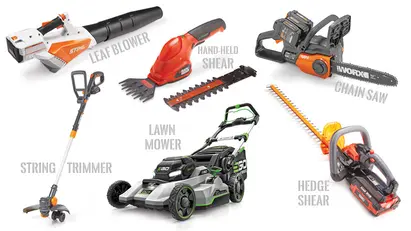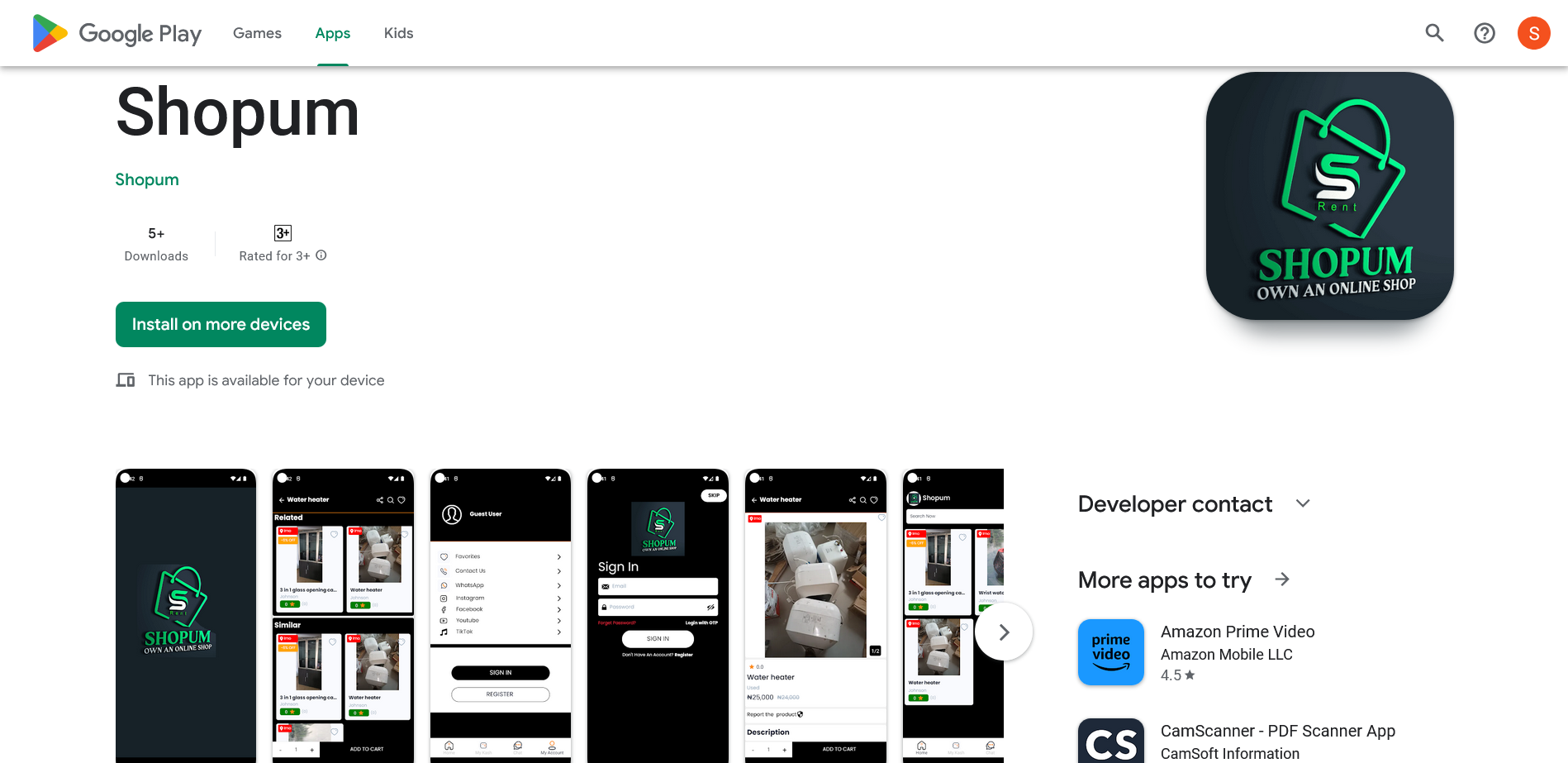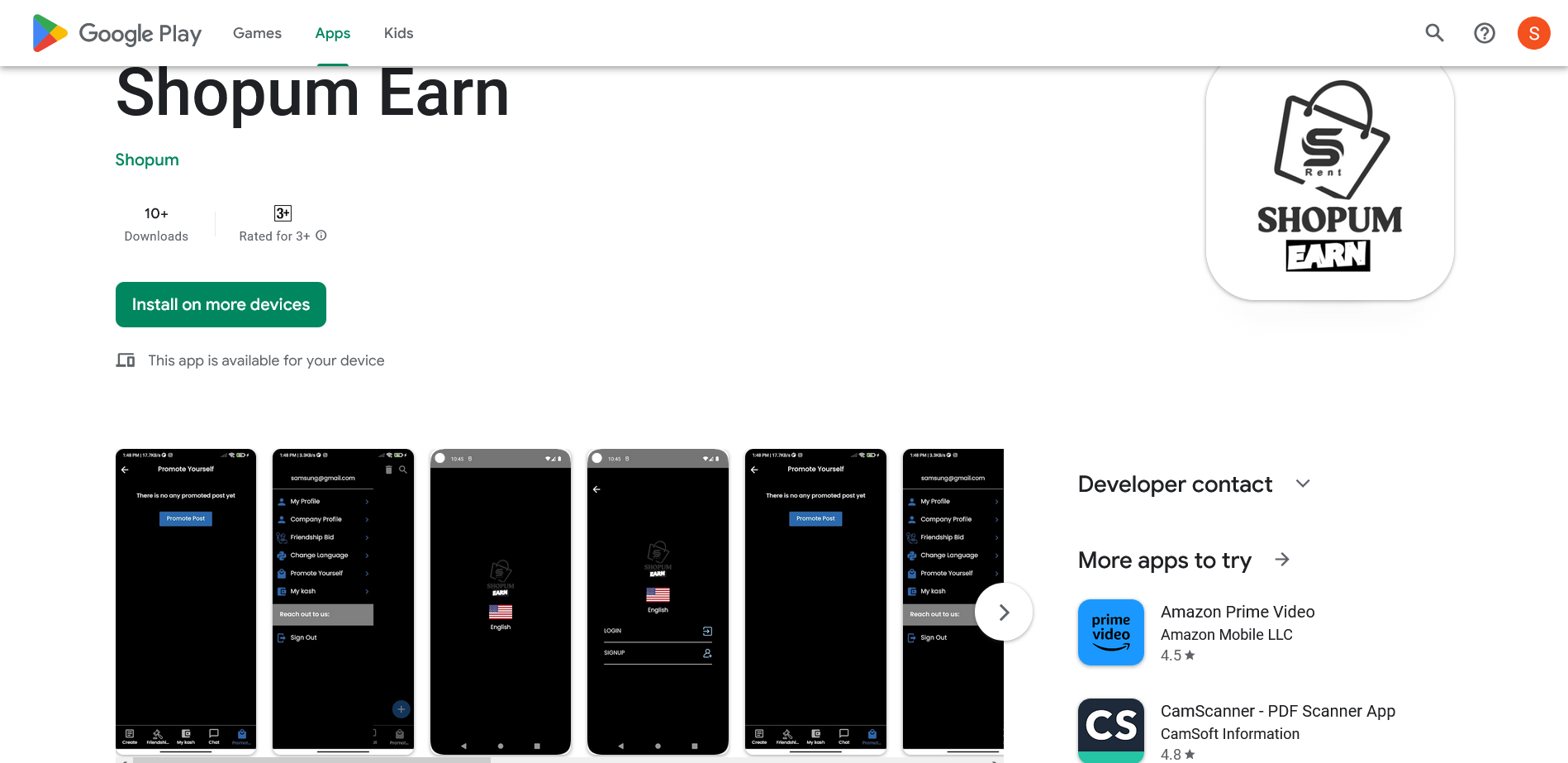Blog
Enhancing Outdoor Spaces: The Art of Outdoor Ornamentation

The allure of the great outdoors has perpetually fascinated individuals, beckoning them to infuse personal touches and embellishments into the natural canvas. Among the various ways to enhance outdoor spaces, the art of outdoor ornamentation stands out as an intricate yet profoundly rewarding endeavor. From traditional garden statues and sculptures to modern artistic installations, outdoor ornamentation encompasses a wide array of decorative elements that elevate the aesthetic appeal of gardens, parks, and various open spaces.
Outdoor ornaments encompass a diverse array of decorative elements designed to enhance the aesthetic appeal of outdoor spaces. From classical statues and sculptures to modern fountains and garden ornaments, these embellishments add character and charm to gardens, parks, and various open areas. Crafted from materials like stone, metal, wood, and resin, these ornaments come in various forms, contributing to the visual allure of landscapes. Whether through elegant sculptures or functional garden ornaments, outdoor ornamentation allows individuals to infuse their personal touch into nature, creating captivating and inviting outdoor environments.
Historical Evolution of Outdoor Ornamentation
Outdoor ornamentation is not a novel concept. Throughout history, civilizations across the globe have used outdoor ornaments to signify cultural, religious, and artistic expressions. Ancient Egyptian gardens featured sculptures of deities and pharaohs, while Greco-Roman gardens were adorned with statues of gods and heroes. The European Renaissance period witnessed a resurgence of interest in outdoor ornamentation, with intricate fountains, sculptures, and topiary becoming prominent features in grand estates and gardens.
Types of Outdoor Ornaments
1. Statues and Sculptures: Statues and sculptures are quintessential outdoor ornaments. These can range from classical replicas of famous figures to abstract, modern pieces. They add a sense of character and charm to gardens and outdoor spaces, becoming focal points or subtly blending into the surroundings, depending on the design and placement.
2. Fountains and Water Features: Water elements, such as fountains, ponds, and waterfalls, not only bring a sense of tranquility but also add an element of movement and sound to outdoor spaces. They can be elaborate, like tiered fountains in formal gardens, or minimalist, with simple, contemporary designs.
3. Garden Ornaments: These include sundials, bird baths, garden gnomes, and other decorative elements that contribute to the visual appeal of the garden. These smaller ornaments often hold symbolic or practical significance, such as attracting birds or marking time.
4. Architectural Elements: Gazebos, arbors, pergolas, and trellises are architectural features that complement outdoor ornamentation. They provide structure, height, and can serve as supports for climbing plants, further enhancing the overall aesthetic.

Materials and Design
Outdoor ornaments are crafted from various materials, including stone, metal, wood, and resin. Stone sculptures and ornaments offer durability and a classic aesthetic, while metal sculptures provide a modern and versatile design. Wood offers a more rustic appeal and is often used for decorative furniture and birdhouses. The choice of material often depends on the intended style, environment, and maintenance considerations.
Design aspects are crucial. Ornamental elements should complement the landscape, considering factors like scale, proportion, and color schemes to ensure harmony with the surroundings.
Benefits of Outdoor Ornamentation
a. Enhanced Aesthetics: Outdoor ornaments transform plain landscapes into captivating, visually appealing spaces. They add depth, character, and a unique touch, contributing to the overall ambiance.
b. Emotional Well-being: Outdoor ornamentation, particularly in natural settings, can have a profound impact on mental health. The beauty and serenity of adorned spaces provide a sense of tranquility and relaxation.
c. Cultural and Personal Expression: Outdoor ornaments often reflect cultural influences or personal preferences, allowing individuals to express their creativity and personality within their outdoor spaces.
Challenges and Considerations
While outdoor ornamentation brings numerous advantages, there are challenges. Weather conditions can affect the durability of materials, requiring periodic maintenance. Additionally, excessive ornamentation might overwhelm the space, so a balanced approach is essential.
Advantages of Outdoor Ornaments
- Aesthetic Enhancement: Outdoor ornaments contribute to the visual appeal of outdoor spaces, adding character, charm, and a unique identity to gardens, parks, and landscapes.
- Emotional Well-being: Well-designed outdoor spaces with ornaments offer tranquility and relaxation, fostering mental well-being and reducing stress by providing a serene environment.
- Personal Expression: Outdoor ornaments provide an opportunity for personal expression, allowing individuals to reflect their personality, preferences, and creativity in their outdoor settings.
- Cultural Significance: Many outdoor ornaments have cultural or historical significance, showcasing traditions, beliefs, or artistic movements, thereby adding depth and meaning to the space.
- Focal Points and Visual Interest: Sculptures, fountains, and other ornaments can act as focal points, drawing the eye and creating visual interest, making the space more engaging and dynamic.
Disadvantages of Outdoor Ornaments
- Maintenance Needs: Outdoor ornaments often require maintenance to preserve their appearance, especially when exposed to weather elements, which can involve cleaning, repairs, and periodic upkeep.
- Overwhelming Design: Excessive ornamentation might overwhelm the outdoor space, causing visual clutter and detracting from the natural beauty of the area.
- Cost Considerations: Acquiring and maintaining outdoor ornaments can involve a significant cost, particularly for larger or more elaborate pieces.
- Environmental Impact: Certain materials used in outdoor ornaments may have environmental implications, such as the extraction of raw materials, production processes, and end-of-life disposal.
- Weathering and Durability: Weather conditions can affect the durability of outdoor ornaments. Certain materials may deteriorate or change in appearance over time due to exposure to sun, rain, wind, or extreme temperatures.
Functions of Outdoor Ornaments
The functions of outdoor ornaments within landscapes and gardens are diverse and encompass several purposes, contributing to the overall ambiance and visual appeal. Some key functions include:
- Aesthetic Enhancement: Outdoor ornaments serve to enhance the visual appeal of outdoor spaces. They add a sense of beauty, character, and charm, transforming an ordinary space into an inviting and visually captivating area.
- Focal Points and Visual Interest: They act as focal points, drawing attention and creating visual interest within the landscape. Sculptures, fountains, and other ornaments strategically placed become eye-catching elements, adding depth and intrigue to the surroundings.
- Personal Expression and Decoration: Outdoor ornaments allow individuals to express their personality, creativity, and preferences within their outdoor space. They serve as decorative elements that reflect the owner's taste, culture, and individuality.
- Emotional Well-being and Relaxation: Well-designed outdoor spaces with thoughtfully placed ornaments contribute to emotional well-being. Tranquil environments created by these ornaments offer a sense of relaxation, peace, and an escape from the stresses of everyday life.
- Cultural and Symbolic Significance: Many outdoor ornaments hold cultural, historical, or symbolic significance. They can represent traditions, beliefs, or artistic expressions, adding depth and meaning to the space.
- Structural Definition and Design: Outdoor ornaments can be utilized to define and structure outdoor spaces. For instance, arches, trellises, and pergolas not only add aesthetic appeal but also define boundaries and create visual structure within the landscape.
- Wildlife Attraction and Functional Use: Some garden ornaments, like bird feeders, bird baths, and specific plantings, attract wildlife, adding life and natural interactions within the space. Additionally, functional ornaments, such as benches or tables, provide practical use within the outdoor environment.
- Historical and Educational Value: Some outdoor ornaments can have historical or educational value, offering insights into different cultural periods, art movements, or historical events, thereby becoming educational elements within the landscape.
- Seasonal Variation and Interest: Outdoor ornaments can be changed seasonally to provide variety and interest. Seasonal decorations or plantings can keep the outdoor space lively and in tune with changing seasons.
:extract_cover():upscale()/2020/11/12/671/n/47459756/8a7b5c333e0fa4a7_il_1588xN.2624756521_fb6c.jpg)
Frequently Asked Questions (FAQ)
What do you call outdoor decorations?
Outdoor decorations in a garden or landscape are often referred to as "outdoor ornaments." These are decorative elements specifically designed to enhance the aesthetic appeal of outdoor spaces.
What are examples of garden ornaments?
Examples of garden ornaments include:
- Statues and sculptures (depicting various figures, animals, or abstract art)
- Fountains and water features
- Bird baths
- Sundials
- Garden gnomes
- Topiary (shaped and sculpted plants)
- Benches or seating areas
- Arbors, trellises, and pergolas
- Wind chimes
- Decorative planters
What is yard ornament?
A yard ornament is a decorative element placed in the yard or outdoor space to enhance its visual appeal. This term is often used interchangeably with garden ornaments and typically refers to items such as sculptures, fountains, garden gnomes, birdbaths, and other decorative pieces placed within the yard area.
What are examples of ornaments?
Ornaments, in a broader sense, can refer to a wide range of decorative items used indoors or outdoors. Examples of ornaments include:
- Christmas ornaments (for decorating trees during the holiday season)
- Jewelry ornaments (like necklaces, earrings, or bracelets)
- Home decorations (such as figurines, vases, and wall art)
- Garden or outdoor ornaments (as discussed earlier, including statues, fountains, bird baths, and other decorative elements for outdoor spaces)
The art of outdoor ornamentation is a timeless practice that continues to evolve, contributing significantly to the beautification of outdoor spaces. From historical significance to modern-day applications, the diverse range of ornaments available allows individuals to tailor their outdoor areas according to personal preferences and aesthetics. As people increasingly seek solace and harmony in nature, the role of outdoor ornamentation in creating inviting, visually stunning spaces grows more important than ever. Whether through statues, fountains, or garden ornaments, the art of outdoor ornamentation remains an enduring way to celebrate nature while adding a touch of human artistry to the great outdoors.
Maximizing Efficiency and Power: The Evolution of Outdoor Power Tools

The evolution of outdoor power tools has significantly revolutionized the way we approach landscaping, gardening, and outdoor maintenance. From the simplicity of the hand-operated tools to the sophisticated, high-powered machinery of today, these tools have not only increased efficiency but also transformed the entire landscape maintenance industry.
Outdoor power tools encompass a diverse range of machinery designed for various outdoor tasks, from gardening to landscaping and maintenance. These tools, powered by electricity, batteries, or fuel, offer efficiency and convenience in handling tasks that would otherwise require extensive physical labor. They include lawn mowers, hedge trimmers, chainsaws, leaf blowers, and more. These tools have evolved from basic, manual implements to high-powered, precision-oriented machinery, integrating advanced technology to enhance performance, reduce environmental impact, and promote sustainability. Their development has significantly transformed the way outdoor tasks are approached, making them more manageable, efficient, and environmentally friendly.
Early Days: Transition from Manual to Power Tools
In the earlier days, the primary tools for outdoor work were basic and manual—axes, shovels, scythes, and manual lawnmowers. These demanded considerable physical effort, limiting the amount of work achievable and often leading to inconsistent results. However, the innovation of the first power tools brought about a drastic change. Electric lawnmowers and hedge trimmers emerged, reducing physical strain and significantly increasing productivity.
Evolution of Power Sources
The development of power tools has been closely linked to advancements in power sources. Initially, corded electric tools offered increased power, reducing the need for manual labor. However, the limitations of corded tools—restricted mobility and dependence on power outlets—led to the rise of cordless battery-powered tools. These cordless variants brought freedom of movement and enhanced convenience, allowing users to reach remote areas without worrying about cords or power sources. Furthermore, the evolution of lithium-ion batteries has significantly improved battery life and overall performance.
Precision and Efficiency
The innovation in outdoor power tools is not solely about power but also precision. Modern tools are engineered to be more precise, enabling users to trim, cut, or mow with accuracy, resulting in more polished and professional-looking landscapes. Features like adjustable cutting heights, multiple speed settings, and various attachments cater to different tasks, making them versatile and adaptable.

Technology Integration
The incorporation of technology into outdoor power tools has been a game-changer. Smart technologies now allow users to monitor and control tools remotely, providing real-time data on performance, battery life, and maintenance schedules through mobile applications. Additionally, sensors and automated functionalities enhance safety features, preventing accidents and ensuring smoother operations.
Environmental Impact and Sustainability
The shift towards sustainability has influenced the design and functionality of outdoor power tools. Manufacturers are increasingly focusing on creating eco-friendly tools that are energy-efficient and produce fewer emissions. Electric tools, in particular, are gaining traction as they significantly reduce carbon emissions compared to gas-powered alternatives. Furthermore, the utilization of renewable energy sources for charging battery-powered tools is being explored, aligning with the global push for sustainability.
Latest Innovations and Future Trends
Continued innovation in outdoor power tools shows no signs of slowing down. The integration of artificial intelligence and machine learning in these tools is being explored to optimize performance, customize user experiences, and provide predictive maintenance. Moreover, the use of robotics in lawn mowing and landscaping is becoming more prevalent, indicating a future where outdoor maintenance could be largely automated.
Frequently Asked Questions (FAQ)
What are outdoor power tools?
Outdoor power tools are mechanical devices designed to aid in landscaping, gardening, and outdoor maintenance tasks. These tools are powered by electricity, batteries, or fuel and are intended to perform various functions such as cutting, trimming, clearing, and cleaning outdoor spaces. They are used to enhance efficiency and reduce physical labor in outdoor maintenance activities.
Examples of power equipment:
Power equipment includes a wide range of tools used for outdoor tasks. Examples of power equipment commonly used are lawnmowers (electric, battery-powered, or gas-powered), leaf blowers, hedge trimmers, chainsaws, pressure washers, snow blowers, tillers, string trimmers, and various types of saws like circular saws and reciprocating saws used for outdoor applications.
Who owns EGO?
EGO is a brand known for its cordless outdoor power equipment, and it is owned by an entity called Chervon. Chervon is a global company that manufactures and markets power tools, outdoor power equipment, and related products under various brand names, including EGO.
Who makes EGO?
EGO is manufactured by Chervon, a multinational corporation known for designing and producing a wide range of power tools and outdoor power equipment. The brand EGO specifically focuses on battery-powered outdoor equipment such as lawn mowers, leaf blowers, string trimmers, chainsaws, and other related tools.

Advantages of Outdoor Power Tools:
- Efficiency and Time-Saving: Outdoor power tools significantly reduce the time and effort required for outdoor tasks. They accomplish work more quickly and efficiently compared to manual tools, allowing users to complete tasks in a fraction of the time.
- Enhanced Precision and Performance: These tools offer precise cutting, trimming, and mowing, resulting in a more professional and well-maintained outdoor space. Adjustable settings and multiple features cater to various tasks, ensuring a higher quality of work.
- Reduced Physical Strain: By eliminating the need for extensive manual labor, power tools reduce physical strain and fatigue. This makes outdoor maintenance more accessible to a broader range of users and promotes a healthier work environment.
- Increased Versatility: Many power tools come with interchangeable attachments or multifunctional features, allowing users to handle various tasks with a single tool. This versatility adds value and convenience to the tools.
- Technology Integration: The integration of technology in power tools enables smart functionalities, remote monitoring, and automation, making operations more convenient and user-friendly. Additionally, smart features contribute to safety and maintenance tracking.
- Environmental Benefits: Battery-powered tools and electric variants significantly reduce emissions and are more environmentally friendly compared to gas-powered alternatives. This supports sustainability efforts and reduces the ecological impact of outdoor maintenance.
Disadvantages of Outdoor Power Tools:
- Cost: High-quality outdoor power tools can be relatively expensive, especially those with advanced features or smart technology integration. Additionally, maintenance, repairs, and replacement parts can add to the overall cost.
- Dependency on Power Sources: Corded tools rely on a power outlet, limiting mobility and range. Battery-powered tools need recharging, which may interrupt tasks if the batteries run out, and cordless tools need an available power source for recharging.
- Noise and Pollution: Some power tools generate noise pollution, which can be disruptive in residential areas. Gas-powered tools contribute to air and noise pollution, which can be a concern for both users and the environment.
- Maintenance and Repairs: Like any machinery, outdoor power tools require regular maintenance and occasional repairs. This adds to the overall cost and may cause interruptions in outdoor tasks when tools are out of service for maintenance.
- Safety Concerns: Power tools, especially those with sharp blades or fast-moving parts, can pose safety risks if not used correctly. Accidents, such as cuts or injuries, may occur if safety precautions are not followed.
- Weight and Portability: Some heavy-duty outdoor power tools can be heavy and less portable, making them cumbersome to handle, particularly for extended periods, or in hard-to-reach areas.

Functions of Outdoor Power Tools
Outdoor power tools serve a wide array of functions designed to facilitate and streamline various tasks related to landscaping, gardening, and outdoor maintenance. Here are the primary functions these tools perform:
1. Cutting and Trimming:
- Lawn Mowers: For cutting grass to maintain lawns and larger outdoor areas.
- Hedge Trimmers: Specifically designed for trimming hedges and shrubs to maintain their shape and size.
- Chainsaws: Used for cutting trees, branches, and logs, both for maintenance and construction purposes.
- String Trimmers/Weed Eaters: Ideal for cutting grass and weeds in tight spaces or where lawnmowers cannot reach.
2. Clearing and Cleaning:
- Leaf Blowers: Used to clear leaves, debris, and grass clippings from lawns and driveways.
- Pressure Washers: For cleaning outdoor surfaces by using high-pressure water to remove dirt, grime, and stains.
3. Ground Preparation and Maintenance:
- Tillers/Cultivators: Used to prepare and maintain garden beds by loosening soil and mixing amendments.
- Aerators: Designed to perforate soil with small holes to allow air, water, and nutrients to penetrate the grass roots.
4. Pruning and Shaping:
- Pruning Saws: Intended for cutting branches and limbs from trees and shrubs.
- Pruners and Loppers: For trimming smaller branches, twigs, and dense foliage.
5. Digging and Excavation:
- Augers: Used for digging holes in the ground, typically for planting trees, installing fences, or erecting posts.
- Post Hole Diggers: Specifically designed for digging holes for posts or poles.
6. Snow Removal:
- Snow Blowers/Snow Throwers: Used to clear snow from driveways, sidewalks, and larger areas.
7. Maintenance Tools:
- Mowers and Grinders: Tools used to maintain the blades of various cutting tools to ensure they function properly.
- Battery Chargers: Essential for charging rechargeable batteries that power cordless tools.
8. Landscaping:
- Turf Rollers: Used for flattening the soil and laying turf or sod in landscaping.
- Edgers: For creating distinct boundaries between garden beds, lawns, and sidewalks.
- Generators: Though not directly used for landscaping, they provide power for outdoor tools in areas where electricity is not readily available.
The evolution of outdoor power tools has fundamentally transformed the way we approach outdoor maintenance and landscaping. From the transition of manual to power tools to the integration of cutting-edge technology and sustainable design, these tools have come a long way. They have not only increased efficiency and productivity but also reduced physical strain on users and minimized environmental impact. The trajectory of outdoor power tools indicates a promising future, where the blend of technology, sustainability, and efficiency will continue to shape the industry, offering more innovative solutions for maintaining our outdoor spaces.
The Timeless Allure of Outdoor Statues: A Reverence in Stone

Throughout history, outdoor statues have stood as silent sentinels, capturing the essence of cultures, beliefs, and the human spirit. From towering monuments to delicate garden sculptures, these timeless artworks serve as testaments to creativity, history, and symbolism. The allure of outdoor statues lies not just in their aesthetic appeal but also in the stories they tell and the emotions they evoke. This article delves into the multifaceted world of outdoor statues, exploring their historical significance, cultural impact, artistic expressions, and their enduring relevance in contemporary society.
Outdoor statues are artistic expressions crafted to adorn exterior spaces, offering a blend of beauty, symbolism, and cultural significance. These sculptures, often made from materials like stone, marble, bronze, or modern elements, stand as enduring testaments to human creativity. Ranging from ancient monuments that narrate historical events and celebrate revered figures to contemporary abstract forms that provoke thought, outdoor statues grace public parks, city squares, and gardens, enriching the surrounding environment with their visual appeal and storytelling. These statues not only beautify the landscape but also serve as focal points for community identity and cultural pride, encouraging reflection, dialogue, and emotional connections with the shared stories they represent. Their timeless presence invites observers to engage with art in a tangible, physical way, fostering a deeper appreciation for history, art, and the human experience.
Historical Significance and Evolution
Outdoor statues trace their lineage back to ancient civilizations. From the imposing monuments of ancient Egypt to the grandeur of Greek and Roman sculptures, these early statues were often crafted in reverence to gods, heroes, and rulers. The skill and artistry evident in these historical works continue to inspire awe.
The Renaissance era witnessed a revival in the creation of outdoor sculptures, exemplified by the works of Michelangelo and Donatello, among others. These masterpieces depicted human forms with unprecedented realism and emotion, setting new standards in artistic expression.
In modern times, outdoor statues have evolved to encompass a broader range of subjects and styles. Sculptors now explore abstract, contemporary, and minimalist forms, reflecting diverse themes and interpretations. Public spaces and private gardens alike are adorned with statues that not only beautify but also provoke thought and introspection.
/product/45/8792722/1.jpg?5455)
Cultural Impact and Symbolism
Outdoor statues serve as cultural symbols, representing shared values, beliefs, and historical narratives. In various cultures, statues commemorate significant events, honor revered figures, or encapsulate collective ideologies. For instance, the Statue of Liberty in the United States stands as an enduring symbol of freedom and democracy, while the Great Buddha of Kamakura in Japan embodies peace and enlightenment.
Moreover, statues often act as focal points for community identity. They adorn city squares, parks, and landmarks, becoming landmarks themselves. These sculptures foster a sense of place and pride, connecting people to their heritage and shared stories.
Artistic Expression and Techniques
The creation of an outdoor statue is a meticulous and intricate process that demands technical skill, artistic vision, and a profound understanding of materials. Sculptors employ various materials such as marble, bronze, stone, and even modern elements like stainless steel or recycled materials. Each material offers distinct challenges and opportunities for expression.
Sculpting techniques vary widely, from traditional hand carving to modern methods involving technology like 3D printing and laser cutting. The process often begins with sketches and maquettes, progressing to the actual carving or casting, and finally, the finishing touches that bring the statue to life.
Enduring Relevance in Contemporary Society
Despite the ever-changing artistic landscape, outdoor statues continue to hold a significant place in contemporary society. Beyond their aesthetic value, they serve as catalysts for dialogue, sparking discussions on culture, history, and societal issues. Public art installations challenge perceptions, provoke thought, and contribute to the vibrancy of urban spaces.
Furthermore, in the digital age, outdoor statues offer a tangible and visceral experience that contrasts with the virtual world. They invite touch, engagement, and a shared physical presence, creating memorable and emotional connections for individuals and communities.

Frequently Asked Questions (FAQ)
What is an outdoor sculpture?
An outdoor sculpture refers to any three-dimensional artwork created for placement in exterior spaces. These sculptures are designed to withstand outdoor elements and can range from monumental public art installations in city squares to smaller pieces found in gardens or parks. They can be made of various materials like stone, metal, wood, or other durable substances.
What can I use for outdoor sculpture?
Several materials are commonly used for outdoor sculptures due to their durability and ability to withstand outdoor conditions. These include:
- Bronze: Known for its longevity and resistance to weathering.
- Stone: Marble, granite, and limestone are popular choices due to their endurance and natural beauty.
- Metal: Stainless steel, iron, and copper can be used, often appreciated for their contemporary aesthetic.
- Resin or Fiberglass: These materials can be cost-effective and are relatively weather-resistant.
- Wood: Certain types of wood, especially those treated or naturally resistant to decay, can be used for outdoor sculptures.
What is a garden statue called?
A statue specifically designed for placement in gardens is commonly referred to as a "garden statue" or a "garden sculpture." These statues are often smaller in scale compared to large public monuments and are tailored for enhancing the beauty and aesthetic appeal of gardens, parks, or outdoor landscapes.
Can you put statues outside?
Yes, statues can be placed outside. However, it's essential to consider the choice of material and the sculpture's design to ensure it can withstand outdoor conditions such as rain, wind, sun exposure, and temperature changes. Materials like bronze, stone, and certain types of treated wood or metals are commonly used for outdoor sculptures due to their durability. Proper maintenance and occasional cleaning may also be necessary to preserve the appearance and structural integrity of outdoor statues over time.
Advantages of Outdoor Statues
- Cultural Enrichment: Outdoor statues contribute to cultural enrichment by preserving and celebrating historical events, figures, and shared values. They serve as visual reminders of a community's heritage, fostering a sense of pride and identity.
- Beautification of Spaces: These sculptures enhance the aesthetic appeal of public areas, gardens, and cityscapes, adding artistic value to the environment. They transform mundane spaces into engaging and visually captivating areas.
- Symbolism and Storytelling: Outdoor statues often tell stories or convey symbolic meanings. They serve as visual narratives, sparking curiosity and engaging viewers in contemplation, discussion, and interpretation of the depicted themes.
- Community Engagement: They act as focal points, drawing people together, and often becoming meeting places or landmarks. Statues encourage social interaction and serve as a point of interest for locals and tourists alike.
- Cultural Tourism: Significant statues attract tourists and contribute to cultural tourism. They become landmarks of interest, encouraging visitors to explore and learn about the culture and history of a place.
Disadvantages of Outdoor Statues
- Maintenance and Preservation: Statues exposed to outdoor elements require regular maintenance to preserve their aesthetic appeal. Weather, pollution, and vandalism can damage the sculptures, necessitating ongoing care and restoration efforts.
- Controversy and Interpretation: Some statues might depict themes or historical figures that are controversial or open to diverse interpretations. This can lead to public debate or discomfort among certain groups within a community.
- Cost and Space: Creating and installing outdoor statues can be expensive. Additionally, allocating space for these structures in crowded urban areas might be challenging and can conflict with other land-use priorities.
- Vandalism and Theft: Unfortunately, outdoor statues are sometimes targets for vandalism or theft. They can be defaced, damaged, or stolen, resulting in the loss of cultural and artistic heritage.
- Static Representation: Some statues may lack dynamism or the ability to evolve with changing societal values and cultural shifts, leading to a perceived disconnect from contemporary perspectives.

Functions of Outdoor Statues
- Cultural Representation and Commemoration: Outdoor statues serve as representations of cultural identity, commemorating historical figures, events, or values significant to a community. They honor heroes, leaders, or pivotal moments, preserving their memory for future generations.
- Public Art and Aesthetic Enhancement: These sculptures contribute to public art, enriching the visual landscape of cities, parks, and public spaces. They provide aesthetic pleasure, enhancing the ambiance and attractiveness of the surroundings.
- Education and Historical Documentation: Outdoor statues act as educational tools, offering a tangible connection to history. They provide an opportunity for viewers to learn about significant historical periods, individuals, or events, fostering a greater understanding of the past.
- Civic Engagement and Community Identity: Statues often become gathering points or landmarks, fostering a sense of community identity. They can serve as focal points for events, rallies, or celebrations, bringing people together and instilling local pride.
- Symbolism and Inspiration: These sculptures convey symbolic meanings, inspiring introspection, dialogue, and contemplation. They can embody ideals such as liberty, justice, peace, or progress, serving as a source of inspiration for individuals and communities.
- Tourism and Economic Impact: Iconic statues attract tourists, contributing to cultural tourism and generating economic benefits for the local area. They become significant landmarks, drawing visitors who spend on accommodations, dining, and local businesses.
- Healing and Commemoration: In certain contexts, outdoor statues in memorial parks or spaces dedicated to specific events serve as places of healing and remembrance. They provide solace and reflection for individuals impacted by tragedy or loss.
- Environmental Interaction and Engagement: Statues placed in outdoor environments create a unique relationship with nature, enhancing the appreciation of art through an interplay with the surrounding landscape.
Outdoor statues are not merely inert figures in stone or metal; they are repositories of stories, conduits of cultural expression, and testaments to human creativity. Their ability to transcend time, communicate across generations, and provoke contemplation cements their significance in the artistic, cultural, and societal realms. As we continue to admire and create these sculptures, we perpetuate a tradition that speaks volumes about our past, present, and our collective aspirations for the future. In their permanence, outdoor statues invite us to pause, reflect, and find inspiration in the enduring beauty and symbolism they hold.
Unveiling the Top 5 Ecommerce Problems in Nigeria and How to Overcome Them

In today's digital age, ecommerce has emerged as a powerful catalyst for economic growth and convenience worldwide. Nigeria, a country known for its vibrant entrepreneurial spirit and large population, is no exception to this trend. As more Nigerians embrace the internet and mobile technologies, ecommerce presents a tremendous opportunity for businesses to thrive and consumers to access a wide range of products and services with ease.
However, behind the promising facade of ecommerce in Nigeria lie several challenges that hinder its full potential. In this blog post, we will delve deep into the top five ecommerce problems facing Nigeria and explore practical strategies to overcome them. By shedding light on these obstacles and providing actionable solutions, we aim to contribute to the growth and success of the Nigerian ecommerce landscape.
The Importance of Ecommerce in Nigeria: Ecommerce has become an integral part of Nigeria's business ecosystem, playing a crucial role in the country's economic development. With a population of over 200 million people, Nigeria offers a vast consumer market that is increasingly connected through the internet and mobile devices. This digitally savvy population seeks the convenience of online shopping, creating immense opportunities for businesses to thrive.
Furthermore, ecommerce has the potential to drive entrepreneurship and job creation in Nigeria. It enables small and medium-sized enterprises (SMEs) to reach a wider customer base without the traditional barriers of physical infrastructure and geographic limitations. This, in turn, empowers entrepreneurs, promotes innovation, and contributes to the overall growth of the Nigerian economy.
However, despite the significant growth and potential of ecommerce in Nigeria, several critical challenges continue to impede its progress. These challenges encompass a wide range of issues, including logistics, payment gateways, trust, infrastructure, and customer education. In the following sections, we will dissect each problem in detail and provide actionable strategies to overcome them.
By understanding and addressing these ecommerce problems head-on, businesses and policymakers can unlock the full potential of Nigeria's digital economy and create an environment that fosters sustainable growth and success. Let us now embark on this insightful journey to unveil the top five ecommerce problems in Nigeria and explore how we can surmount them together.
What are the problems of e-commerce in Nigeria?
The Nigerian ecommerce industry, despite its enormous potential, faces several challenges that impede its growth and hinder the optimal functioning of online businesses. Some of the key problems of ecommerce in Nigeria include:
- Logistics and Infrastructure: Inadequate transportation networks, poor road conditions, and unreliable delivery systems pose significant challenges for ecommerce businesses. The lack of a well-developed logistics infrastructure often results in delayed or failed deliveries, leading to customer dissatisfaction.
- Payment Gateways and Security: Limited options for secure online payment gateways create trust issues among consumers. The absence of widely accepted and reliable payment platforms makes it difficult for ecommerce businesses to process transactions smoothly, leading to a decline in customer confidence and increased cart abandonment rates.
- Trust and Consumer Confidence: Building trust and credibility in the ecommerce space remains a challenge in Nigeria. Due to the prevalence of fraudulent activities and online scams, many consumers are hesitant to make online purchases or provide personal information, hindering the growth of ecommerce businesses.
- Internet Penetration and Connectivity: While internet penetration has improved in Nigeria over the years, access to affordable and reliable internet services remains uneven across the country. Limited internet connectivity and slow internet speeds in certain regions hinder the adoption of ecommerce, particularly in rural areas.
- Customer Education and Awareness: Many Nigerians, especially those in remote areas, lack sufficient knowledge and awareness about online shopping and the benefits of ecommerce. Educating consumers about the advantages, safety measures, and convenience of ecommerce is crucial for its widespread adoption and success.
Which is a major problem with e-commerce?
Among the various challenges faced by ecommerce in Nigeria, one major problem is the issue of logistics and infrastructure. The country's transportation networks, including roads and delivery systems, often fall short in meeting the demands of a growing ecommerce industry. Inadequate infrastructure and poor logistics management lead to delayed deliveries, damaged products, and inefficient supply chains. These issues result in dissatisfied customers, increased operational costs for businesses, and difficulties in scaling ecommerce operations across Nigeria.
What is the situation of ecommerce in Nigeria?
The situation of ecommerce in Nigeria presents a mix of opportunities and challenges. On one hand, the country has witnessed significant growth in digital connectivity and internet penetration. With a large and increasingly tech-savvy population, there is immense potential for ecommerce businesses to thrive in Nigeria's market. The rise of mobile technology and the increasing adoption of smartphones have also contributed to the growth of online shopping.
However, several challenges persist, inhibiting the full realization of ecommerce's potential. Issues such as logistics and infrastructure, limited payment gateways, low consumer trust, inadequate internet connectivity in some areas, and the need for customer education pose hurdles for ecommerce businesses operating in Nigeria.
Despite these challenges, the Nigerian government and various stakeholders are actively working to address these issues, implement supportive policies, and foster an environment conducive to ecommerce growth. With continuous efforts, the situation of ecommerce in Nigeria holds promise for further expansion and development.
History of ecommerce in Nigeria:
The history of ecommerce in Nigeria can be traced back to the early 2000s when internet usage started gaining traction in the country. Initially, the concept of buying and selling products online was met with skepticism and distrust. However, as internet penetration increased and mobile technology became more accessible, Nigerians began to embrace the convenience and benefits offered by ecommerce.
Online marketplaces, such as Jumia and Konga, emerged as pioneers in the Nigerian ecommerce industry. They played a significant role in introducing Nigerians to the concept of online shopping and building trust in ecommerce transactions.
Over the years, the ecommerce landscape in Nigeria has witnessed significant growth, fueled by advancements in technology, increasing internet penetration, and a rising middle class. Despite the challenges, ecommerce continues to expand, with more entrepreneurs and businesses venturing into the online space to tap into the vast Nigerian consumer market.
The Role of ecommerce in Nigeria:
Ecommerce plays a crucial role in Nigeria's economic development and digital transformation. It offers numerous benefits and opportunities for businesses, consumers, and the overall economy. Some key roles of ecommerce in Nigeria include:
- Economic Growth and Job Creation: Ecommerce contributes to economic growth by facilitating entrepreneurship and job creation. It provides a platform for small and medium-sized enterprises (SMEs) to reach a wider customer base, expand their operations, and create employment opportunities.
- Increased Access to Markets: Ecommerce eliminates geographical barriers, enabling businesses to access customers across Nigeria and beyond. It opens up new markets and opportunities, particularly for businesses in remote areas that may face limitations in traditional retail.
- Convenience and Accessibility: Ecommerce offers convenience to consumers by providing 24/7 access to a wide range of products and services. It allows individuals to shop from the comfort of their homes, saving time and effort.
- Digital Inclusion: Ecommerce plays a role in bridging the digital divide by promoting digital inclusion. As more Nigerians gain access to the internet and smartphones, ecommerce presents an opportunity for them to participate in online transactions and benefit from the digital economy.
- Innovation and Technological Advancements: Ecommerce encourages innovation in payment systems, logistics, and customer experiences. It drives technological advancements and fosters the development of digital solutions tailored to the Nigerian market.
Issues and Challenges of e-business for SMEs in Nigeria:
Small and medium-sized enterprises (SMEs) in Nigeria face specific issues and challenges when it comes to conducting e-business. Some of these challenges include:
- Limited Resources: SMEs often have limited financial and technical resources, which can hinder their ability to establish and maintain an effective online presence. Building and managing an ecommerce platform may require upfront investments that SMEs struggle to afford.
- Technical Expertise: Lack of technical expertise and knowledge about e-business processes and platforms can be a significant hurdle for SMEs. This includes challenges related to website development, online marketing, and managing online transactions.
- Access to Financing: SMEs may face difficulties in accessing financing options to invest in e-business infrastructure, marketing, and expansion. Limited access to funding can impede their ability to compete effectively in the digital marketplace.
- Trust and Credibility: Building trust and credibility is crucial for SMEs in the e-business space. Establishing a reputable online presence and addressing concerns related to fraud and security can be challenging for SMEs, particularly those that are new or lesser-known.
- Competitive Landscape: SMEs face intense competition from both established players and other emerging e-businesses. Standing out in a crowded market and attracting customers can be a significant challenge for SMEs with limited resources.
Government policies to protect online businesses:
To protect online businesses and promote a conducive environment for ecommerce in Nigeria, the government has implemented several policies and regulations. Some of these policies include:
- Consumer Protection Regulations: The Nigerian government has introduced regulations to safeguard consumers' rights and protect them from fraudulent activities, unfair business practices, and poor-quality products. These regulations aim to instill confidence in online shoppers and promote trust in ecommerce transactions.
- Cybersecurity and Data Protection: The government has enacted laws and regulations to address cybersecurity threats and protect consumers' personal information. These measures ensure that online businesses adhere to data protection standards and implement necessary security measures to safeguard customer data.
- Intellectual Property Rights: The government has established laws to protect intellectual property rights, including copyrights, trademarks, and patents. These laws help prevent online businesses from infringing on others' intellectual property and promote fair competition.
- Support for Digital Infrastructure: The government recognizes the importance of digital infrastructure for ecommerce growth. Initiatives are underway to improve internet connectivity, invest in telecommunications infrastructure, and expand access to affordable and reliable internet services across the country.
- Business Registration and Compliance: The government has simplified business registration processes to encourage formalization and ensure compliance with regulations. This enables online businesses to operate legally and benefit from government support programs and incentives.
By implementing these policies, the Nigerian government aims to create a secure and supportive environment for online businesses, protect consumers' rights, and promote the growth of ecommerce in the country.
Practical solutions and recommendations to address the challenges faced by ecommerce in Nigeria and improve the situation:
- Logistics and Infrastructure:
- Strengthen partnerships with reliable logistics providers: Ecommerce businesses can collaborate with established logistics companies that have a wide network and experience in navigating Nigeria's transportation challenges. This can help improve delivery efficiency and reduce delays.
- Invest in in-house logistics capabilities: Developing in-house logistics capabilities, such as establishing warehouses in strategic locations, can help ecommerce businesses have more control over the shipping process and improve delivery timelines.
- Leverage technology for logistics management: Utilize technology solutions, such as route optimization software and real-time tracking systems, to streamline logistics operations, improve delivery accuracy, and enhance customer experience.
- Payment Gateways and Security:
- Partner with trusted payment service providers: Ecommerce businesses should integrate with reputable payment gateways that offer secure and widely accepted payment options. Examples include Paystack, Flutterwave, and Interswitch.
- Implement robust security measures: Ensure the use of SSL certificates, encryption protocols, and two-factor authentication to safeguard customer data and protect against online fraud. Regularly update security systems and stay informed about the latest security threats and best practices.
- Educate customers about online security: Provide clear information to customers about the security measures in place and educate them on safe online shopping practices to build trust and confidence in the payment process.
- Trust and Consumer Confidence:
- Enhance customer reviews and ratings: Encourage satisfied customers to leave reviews and ratings on your platform, as this helps build trust and credibility. Respond to customer feedback promptly and transparently to address any concerns.
- Establish clear return and refund policies: Clearly communicate your return and refund policies, making them easily accessible on your website. Honoring customer requests for returns and refunds promptly and efficiently helps build trust.
- Collaborate with reputable brands and influencers: Partner with established brands and influencers who have a positive reputation and a strong following. Their endorsement can enhance your credibility and foster trust among consumers.
- Internet Penetration and Connectivity:
- Advocate for improved internet infrastructure: Collaborate with industry associations and government bodies to advocate for the improvement of internet infrastructure, including increased broadband access and better connectivity in underserved areas.
- Optimize website and app performance: Ensure that your ecommerce platform is optimized for low bandwidth connections and mobile devices, as mobile internet usage is predominant in Nigeria. Implement techniques such as image compression, caching, and responsive design to enhance website performance.
- Offer offline options: Provide offline alternatives for customers with limited internet access, such as accepting orders and payments via phone calls or text messages. This ensures inclusivity and widens your customer base.
- Customer Education and Awareness:
- Develop educational content: Create informative blog posts, videos, and guides that educate customers about the benefits, safety measures, and process of online shopping. Share this content on your website, social media channels, and through partnerships with influencers or industry experts.
- Collaborate with local communities: Organize workshops, seminars, or webinars in partnership with local communities, educational institutions, or business associations to educate people about ecommerce and its advantages. Offer hands-on training and demonstrations to address any reservations or misconceptions.
- Simplify the user experience: Ensure that your ecommerce platform is user-friendly and intuitive, making it easy for customers to navigate, search for products, and complete transactions. Provide clear instructions and tooltips to guide customers through the buying process.
By implementing these solutions and recommendations, ecommerce businesses and the government can work together to address the challenges facing the Nigerian ecommerce industry, improve the situation, and foster its growth and success.
Download the Shopum app and Shopum earn apps from the Play Store and App Store to unlock a world of opportunities for your business needs. Don't forget to follow us on our social media platforms for updates, tips, and promotions:
- Facebook: https://web.facebook.com/shopu...
- TikTok: https://www.tiktok.com/@shopum...
- Instagram: https://www.instagram.com/shop...
- Twitter: https://twitter.com/shopumshop
- YouTube: https://www.youtube.com/channe...
For more information and to explore our website, visit https://shopum.shop. If you have any inquiries, feel free to reach out to us at info@shopum.shop.
Visit us at our address: Suite P6 Man-made Plaza, No. 10 Mbari Street Ikenegbu Layout, Owerri 460281, Imo state, Nigeria.
Take the first step towards maximizing your business potential with Shopum and join our thriving community today.
Shopum: Shopum Android Download Link
Shopum Earn: Shopum Earn Android Download Link
=====================
Shopum: Shopum ios Download Link
Shopum Earn: Shopum Earn ios Download Link
Top 20 Profitable Business Ideas Nigerians Are Searching For.

Are you ready to dive into the exciting world of entrepreneurship in Nigeria? In this blog post, we'll explore the top 20 profitable business ideas that Nigerians are searching for. Whether you're a budding entrepreneur looking to start your own venture or an investor seeking lucrative opportunities, this comprehensive guide is here to help you make informed decisions.
Nigeria, often referred to as the "Giant of Africa," boasts a thriving economy and a population of over 200 million people. With its rich natural resources, expanding middle class, and a growing appetite for innovation, Nigeria presents a fertile ground for business opportunities. However, in order to succeed in this dynamic market, it's crucial to stay ahead of the curve and tap into the business ideas that resonate with Nigerians.
Exploring business ideas in Nigeria is of paramount importance for several reasons. Firstly, it allows individuals to leverage the untapped potential of various industries and capitalize on emerging trends. By identifying profitable niches and consumer demands, entrepreneurs can position themselves at the forefront of Nigeria's evolving marketplace.
Moreover, venturing into a business idea that Nigerians are actively searching for increases the likelihood of success. When you align your entrepreneurial aspirations with the interests and needs of the Nigerian population, you not only tap into a ready market but also gain a competitive advantage over others.
Additionally, exploring business ideas in Nigeria contributes to the overall economic growth of the country. As new businesses emerge and thrive, job opportunities are created, and the local economy receives a boost. By fostering entrepreneurship and supporting innovative ventures, Nigeria can continue its trajectory towards becoming a major player in the global business landscape.
Now, let's delve into the top 20 profitable business ideas that Nigerians are searching for, and uncover the potential that awaits those who are ready to seize these opportunities. Whether you're dreaming of a tech startup, a sustainable venture, or a traditional brick-and-mortar business, we've got you covered. Let's embark on this entrepreneurial journey together and unlock the incredible possibilities that lie within Nigeria's vibrant business ecosystem.
20 lists of business.
- Point of Sale (POS) Solutions: Provide reliable and efficient POS systems to help businesses streamline their transactions and manage inventory.
- E-commerce Store: Start an online store that offers a wide range of products, leveraging the growing trend of online shopping in Nigeria.
- Fast Food Restaurants: Set up a fast-food restaurant that caters to the busy lifestyles of Nigerians, offering quick and delicious meals.
- Mobile Food Truck: Bring tasty and convenient food options directly to various locations by operating a mobile food truck.
- Food Delivery Service: Create a platform that offers food delivery services, partnering with local restaurants to reach a wider customer base.
- Solar Energy Installation: Tap into the renewable energy sector by providing solar energy installation services to residential and commercial properties.
- Digital Marketing Agency: Help businesses enhance their online presence and reach their target audience by offering digital marketing services.
- Real Estate: Invest in real estate properties, whether residential or commercial, and generate income through rental properties or property sales.
- Health and Wellness Center: Establish a wellness center that offers services like fitness classes, nutrition counseling, and alternative therapies to promote holistic well-being.
- Mobile App Development: Develop mobile applications for businesses and individuals, catering to the increasing demand for mobile technology solutions.
- Laundry and Dry Cleaning Service: Provide convenient and reliable laundry and dry cleaning services to individuals, households, and businesses.
- Beauty and Grooming Salon: Open a salon that offers a wide range of beauty and grooming services, including hair styling, makeup, nail care, and spa treatments.
- Event Planning and Management: Help individuals and businesses plan and execute memorable events, such as weddings, conferences, and parties.
- Agriculture and Farming: Venture into agricultural activities such as crop farming, livestock rearing, or aquaculture to meet the demand for food products in Nigeria.
- Waste Management and Recycling: Start a waste management company that focuses on proper waste disposal and recycling to address environmental concerns.
- Home Cleaning Services: Provide professional home cleaning services to busy individuals and families who require assistance in maintaining a clean and organized living space.
- Online Tutoring: Offer online tutoring services in various subjects or specialized skills, leveraging the growth of e-learning in Nigeria.
- Pet Care Services: Cater to the increasing number of pet owners by offering pet grooming, pet sitting, and dog walking services.
- Fitness Equipment Sales and Rentals: Set up a business that sells or rents out fitness equipment, tapping into the growing interest in health and fitness.
- Fashion Boutique: Open a fashion boutique that showcases trendy clothing, accessories, and footwear, catering to the fashion-conscious Nigerian market.
Here are expanded details on how to go about each of the 20 business ideas for Nigeria:
- Point of Sale (POS) Solutions:
- Research and choose a reliable POS system provider to partner with or develop your own POS software.
- Acquire the necessary hardware (cash registers, barcode scanners, receipt printers) and install the POS system in retail stores or businesses.
- Provide training and ongoing technical support to ensure smooth operation and customer satisfaction.
- Generate revenue through software licensing, hardware sales, and maintenance services.
- E-commerce Store:
- Identify a niche or product category to focus on, considering market demand and competition.
- Build an e-commerce website using platforms like Shopify or WooCommerce, or consider partnering with existing e-commerce platforms.
- Source products from wholesalers, manufacturers, or through dropshipping.
- Implement effective digital marketing strategies to drive traffic and sales.
- Provide excellent customer service and ensure seamless order fulfillment.
- Fast Food Restaurants:
- Conduct market research to identify target locations and customer preferences.
- Develop a unique fast-food menu with a variety of affordable and tasty options.
- Secure a suitable location and obtain necessary permits and licenses.
- Hire skilled staff, including chefs, cooks, and servers.
- Create a memorable dining experience with efficient service, comfortable ambiance, and consistent quality.
- Mobile Food Truck:
- Choose a specific food concept or cuisine to offer.
- Purchase or convert a truck into a mobile kitchen equipped with cooking appliances, storage, and refrigeration.
- Identify high-traffic areas and events to park the food truck and attract customers.
- Develop a catchy and memorable brand identity.
- Promote your food truck through social media, local marketing, and word-of-mouth.
- Food Delivery Service:
- Establish partnerships with local restaurants to offer delivery services.
- Develop a user-friendly website or mobile app where customers can place orders.
- Set up an efficient logistics system to ensure timely delivery.
- Implement online payment options and offer customer support channels.
- Continuously expand restaurant partnerships and invest in marketing to increase customer reach.
- Solar Energy Installation:
- Obtain the necessary certifications and licenses for solar energy installation.
- Conduct site assessments to determine the feasibility of solar installations for residential and commercial properties.
- Source quality solar panels, inverters, and other necessary equipment from reliable suppliers.
- Hire skilled installers or train a team to handle installations.
- Provide maintenance and support services to ensure optimal performance.
- Digital Marketing Agency:
- Develop a comprehensive portfolio of digital marketing services, such as search engine optimization (SEO), social media marketing, content creation, and pay-per-click advertising.
- Build a team of skilled professionals in various digital marketing disciplines.
- Create a strong online presence by showcasing successful case studies and client testimonials.
- Network with businesses and attend industry events to generate leads.
- Continuously stay updated on digital marketing trends and techniques.
- Real Estate:
- Research and identify lucrative real estate opportunities, such as residential properties, commercial buildings, or land for development.
- Secure funding or partner with investors for property acquisition.
- Hire or collaborate with real estate agents to facilitate property sales or rentals.
- Conduct thorough market analysis to set competitive prices.
- Provide exceptional customer service and maintain transparent and ethical business practices.
- Health and Wellness Center:
- Determine the specific health and wellness services to offer, such as fitness classes, nutrition counseling, yoga, or spa treatments.
- Lease or purchase a suitable space with adequate facilities and amenities.
- Hire qualified professionals, such as personal trainers, nutritionists, and wellness coaches.
- Develop membership packages and pricing models to cater to different customer segments.
- Promote your center through social media, partnerships with local health influencers, and community events.
- Mobile App Development:
- Acquire the necessary technical skills or hire experienced app developers.
- Conduct market research to identify popular app categories or niche markets.
- Collaborate with clients or develop your own app ideas based on market demand.
- Follow a systematic development process, including prototyping, design, coding, and testing.
- Publish apps on popular platforms like Google Play Store and Apple App Store and implement effective marketing strategies.
- Laundry and Dry Cleaning Service:
- Decide on the type of laundry service to offer, such as self-service, drop-off, or pickup and delivery.
- Acquire commercial-grade laundry equipment, including washing machines, dryers, and ironing stations.
- Identify a convenient location or offer mobile laundry services.
- Develop a user-friendly website or mobile app for scheduling and payment processing.
- Provide prompt and high-quality service while ensuring proper handling of customers' garments.
- Beauty and Grooming Salon:
- Choose a specific focus within the beauty industry, such as hair care, skincare, or makeup.
- Set up a well-designed and comfortable salon space with appropriate equipment and stations.
- Hire skilled beauticians, stylists, and therapists.
- Offer a range of services, including haircuts, styling, facials, manicures, and pedicures.
- Create a welcoming atmosphere and provide personalized consultations to clients.
- Event Planning and Management:
- Determine the types of events you specialize in, such as weddings, corporate events, or conferences.
- Build a network of reliable vendors, including venues, caterers, decorators, and entertainment providers.
- Develop detailed event planning packages and pricing structures.
- Market your services through online platforms, social media, and collaborations with event-related businesses.
- Ensure impeccable organizational skills, attention to detail, and exceptional customer service to create memorable events.
- Agriculture and Farming:
- Research the agricultural market and identify profitable crops, livestock, or aquaculture opportunities.
- Acquire suitable land or partner with local farmers.
- Implement modern farming techniques and technologies to optimize productivity and efficiency.
- Establish distribution channels to sell produce to wholesalers, retailers, or directly to consumers.
- Stay informed about government agricultural policies and leverage available grants or support programs.
- Waste Management and Recycling:
- Identify the specific waste management services to offer, such as waste collection, recycling, or waste disposal consulting.
- Obtain necessary permits and licenses for waste management operations.
- Develop partnerships with recycling centers and waste disposal facilities.
- Educate the community about proper waste management practices through awareness campaigns and workshops.
- Implement efficient waste collection and disposal systems while prioritizing environmental sustainability.
- Home Cleaning Services:
- Determine the scope of home cleaning services, such as regular cleaning, deep cleaning, or specialized cleaning (e.g., post-construction).
- Acquire essential cleaning supplies and equipment.
- Develop a pricing model based on the size of the property and the level of cleaning required.
- Advertise your services through online platforms, local directories, and word-of-mouth referrals.
- Offer flexible scheduling options and ensure thorough and reliable cleaning services.
- Online Tutoring:
- Identify the subjects or skills you specialize in or hire qualified tutors in various disciplines.
- Develop an online tutoring platform with features like virtual classrooms, interactive whiteboards, and video conferencing.
- Advertise your tutoring services through educational websites, social media, and student communities.
- Tailor lesson plans and teaching methodologies to suit different learning styles and student needs.
- Collect feedback and continuously improve the quality of tutoring services.
- Pet Care Services:
- Determine the specific pet care services to offer, such as pet grooming, dog walking, pet sitting, or training.
- Set up a pet-friendly facility equipped with grooming tools, play areas, and comfortable boarding spaces.
- Hire experienced and passionate pet caregivers.
- Establish partnerships with local veterinarians and pet supply stores.
- Market your services through social media, local pet communities, and pet-related events.
- Fitness Equipment Sales and Rentals:
- Identify popular fitness equipment brands and manufacturers to partner with or source from.
- Determine if you will focus on sales, rentals, or both.
- Set up a physical store or develop an e-commerce website to showcase and sell fitness equipment.
- Offer flexible rental options, including short-term and long-term contracts.
- Provide customer support, maintenance services, and product warranties.
- Fashion Boutique:
- Define your target market and identify the fashion styles and trends they prefer.
- Source clothing, accessories, and footwear from reputable suppliers, both locally and internationally.
- Choose a strategic location for your boutique or consider an online store.
- Create an appealing store layout and visually appealing displays.
- Leverage social media, fashion influencers, and collaborations with local designers to promote your boutique.
What business sells most in Nigeria?
In Nigeria, several businesses are known to sell well due to factors such as demand, profitability, and market trends. While the success of a business can vary depending on various factors, here are some sectors that generally tend to perform well in Nigeria:
- Food and Beverage: The food industry is thriving in Nigeria due to the large population and diverse culinary preferences. Restaurants, fast food chains, food delivery services, and packaged food products often see high demand.
- Fashion and Apparel: Nigerians have a strong affinity for fashion, making the fashion and apparel industry a lucrative one. Clothing boutiques, fashion retail stores, and online fashion brands tend to do well, especially when offering trendy and affordable options.
- Mobile Phones and Electronics: With the rise in technology adoption and mobile phone usage, the demand for smartphones, accessories, and electronics is significant in Nigeria. Retailers and distributors of mobile phones, gadgets, and electronic devices often experience high sales.
- Beauty and Personal Care Products: Nigerians place great importance on personal grooming and beauty. Businesses selling cosmetics, skincare products, hair care products, and beauty accessories often thrive in the market.
- Real Estate: Nigeria's growing population and urbanization have fueled demand for housing and commercial properties. Real estate developers, property agents, and rental property owners often find success in this sector.
- Education and Tutoring Services: Education is highly valued in Nigeria, and businesses that offer educational services, tutoring, and professional training often do well. This includes private schools, coaching centers, and online education platforms.
- Health and Wellness: Nigerians are becoming increasingly health-conscious, leading to the growth of businesses in the health and wellness sector. This includes fitness centers, gyms, organic food stores, and wellness spas.
- Agricultural Products: Nigeria has a large agricultural sector, and businesses involved in the production, processing, and distribution of agricultural products tend to thrive. This includes crop farming, livestock rearing, and agro-processing companies.
- E-commerce: The rise of internet access and online shopping has boosted the e-commerce industry in Nigeria. Businesses that operate online marketplaces, sell products through e-commerce platforms, or offer logistics and delivery services often witness high sales.
- Financial Services: Nigeria's financial sector is robust, and businesses in banking, insurance, fintech, and microfinance often perform well due to the need for financial services and products.
What can I supply to companies in Nigeria?
There are numerous products and services that you can supply to companies in Nigeria, depending on your expertise, interests, and available resources. Here are some ideas:
- Office Supplies: Companies require a steady supply of office essentials such as stationery, printer cartridges, paper, pens, folders, and other office supplies.
- IT Equipment and Services: Nigerian businesses often require IT equipment like computers, laptops, servers, networking devices, and software solutions. Additionally, IT services such as system maintenance, network setup, and data management are in demand.
- Furniture and Fixtures: Companies in Nigeria require office furniture such as desks, chairs, filing cabinets, and storage solutions. Additionally, you can provide interior design services to help companies create functional and aesthetically pleasing office spaces.
- Safety and Security Products: Supplying safety equipment and security systems such as CCTV cameras, fire extinguishers, safety signs, alarms, and access control systems can cater to the safety needs of businesses.
- Industrial Equipment and Machinery: Nigerian industries require machinery and equipment for manufacturing, construction, agriculture, and other sectors. Examples include generators, heavy machinery, manufacturing equipment, and agricultural machinery.
- Cleaning and Sanitary Products: Companies need a regular supply of cleaning products, detergents, janitorial supplies, and hygiene products for maintaining clean and safe work environments.
- Packaging Materials: Packaging is crucial for product storage, transportation, and presentation. Supplying packaging materials like boxes, containers, labels, and wrapping materials can cater to the needs of manufacturing and retail companies.
- Printing and Advertising Services: Businesses often require printing services for marketing materials, promotional items, banners, and signage. Offering printing services, graphic design, and advertising solutions can be a profitable venture.
- Catering and Food Services: Providing catering services for corporate events, meetings, and conferences is in demand. You can also supply packaged snacks, beverages, or specialized food items to offices and canteens.
- Training and Consulting Services: Companies often seek training and consulting services to enhance their employees' skills or improve business processes. If you have expertise in a particular field, you can offer training programs or consulting services tailored to their needs.
- Renewable Energy Solutions: With the increasing demand for sustainable energy sources, supplying solar panels, inverters, and other renewable energy equipment can be a lucrative business opportunity.
- Logistics and Transportation: Nigerian companies require reliable logistics and transportation services for moving goods and products. You can offer delivery services, freight forwarding, or even establish a courier company.
- Waste Management Services: Providing waste management and recycling solutions to companies can help them dispose of waste responsibly and sustainably. This includes waste collection, recycling, and disposal services.
- Event Services: Companies often require event planning, management, and rental services for conferences, exhibitions, product launches, and corporate functions. Providing event-related services such as venue rental, audiovisual equipment, and event planning can be profitable.
- Health and Safety Services: Companies must comply with health and safety regulations. You can offer health and safety training, consultancy, and inspection services to help companies maintain a safe work environment.
Hidden business opportunities in nigeria.
There are several hidden business opportunities in Nigeria that have the potential for growth and profitability. These opportunities often arise from emerging trends, untapped markets, and evolving consumer needs. Here are some hidden business opportunities in Nigeria:
- Agribusiness: Nigeria has vast agricultural resources, and there are opportunities in agricultural processing, exportation of agricultural products, organic farming, and value-added agro-products.
- Renewable Energy: As the demand for clean and sustainable energy grows, there are opportunities in solar power installations, biomass energy, wind power, and energy-efficient solutions.
- Waste Recycling and Management: With increasing awareness of environmental sustainability, businesses focused on waste recycling, composting, plastic recycling, and waste management consulting have significant growth potential.
- E-commerce Logistics and Services: With the rapid growth of e-commerce, there is a need for logistics and services such as last-mile delivery, warehousing, packaging solutions, and online payment systems.
- HealthTech: The healthcare sector in Nigeria is ripe for innovation. Opportunities exist in telemedicine, health information systems, mobile health apps, medical equipment and supplies, and health insurance services.
- Financial Technology (Fintech): Nigeria's large unbanked population presents opportunities in fintech services such as mobile banking, payment solutions, peer-to-peer lending, and microfinance.
- Personalized Fitness and Wellness: As Nigerians become more health-conscious, there is a growing demand for personalized fitness training, wellness coaching, specialized diets, and fitness equipment.
- Virtual Assistance and Remote Work Solutions: With the rise of remote work, there is a demand for virtual assistants, co-working spaces, productivity tools, and remote collaboration platforms.
- Education Technology (EdTech): The education sector in Nigeria is embracing technology. Opportunities exist in online tutoring, e-learning platforms, educational apps, and skills development programs.
- Cultural Tourism: Nigeria's rich cultural heritage offers opportunities in cultural tourism, eco-tourism, heritage preservation, and tour guide services.
- Home Improvement and Interior Design: With urbanization and increasing disposable income, there is a demand for home improvement services, interior design, home decor, and customized furniture.
- Data Analytics and Business Intelligence: Businesses are recognizing the value of data-driven decision-making. Opportunities exist in data analytics, business intelligence tools, data consulting, and market research services.
- Waste-to-Energy: Nigeria's waste management challenges can be addressed through waste-to-energy solutions, such as converting organic waste into biogas or generating electricity from waste.
- E-commerce Aggregators: Building platforms that aggregate products and services from different e-commerce sites can simplify the online shopping experience and provide opportunities for affiliate marketing and advertising.
- Senior Care Services: With an aging population, there is a growing need for senior care services, including assisted living facilities, home healthcare, and specialized products for the elderly.
What is the most profitable business in nigeria?
Determining the most profitable business in Nigeria can be subjective and dependent on various factors such as market conditions, location, target audience, competition, and individual business management. However, here are some sectors that are known to have the potential for profitability in Nigeria:
- Oil and Gas: Nigeria is known for its oil reserves, and businesses in the oil and gas sector, including exploration, production, refining, and distribution, have traditionally been lucrative.
- Real Estate and Property Development: Nigeria's growing population and urbanization present opportunities in real estate development, property management, and rental properties, which can generate significant returns on investment.
- Agriculture: Nigeria has abundant agricultural resources, and businesses involved in crop farming, livestock rearing, poultry farming, fish farming, and agro-processing can be highly profitable.
- Telecommunications: The telecommunications industry in Nigeria has experienced remarkable growth, and businesses offering mobile network services, internet service providers, and related technology solutions can be profitable.
- Banking and Financial Services: Nigeria's large population and emerging middle class create a demand for banking services, microfinance, insurance, investment management, and financial technology (fintech) solutions.
- Manufacturing: The manufacturing sector in Nigeria offers opportunities in various industries such as food processing, textiles, cement production, pharmaceuticals, consumer goods, and automobile assembly.
- E-commerce: With the rise of internet penetration and online shopping, e-commerce businesses, including online retail, delivery services, and e-payment solutions, have seen significant growth and profitability.
- Education and Training: Nigeria has a high demand for quality education and training services. Businesses in private schools, vocational training centers, professional certification programs, and e-learning platforms can be profitable.
- Health and Wellness: The healthcare sector in Nigeria presents opportunities in hospitals, clinics, diagnostic centers, pharmaceuticals, medical equipment, health insurance, and specialized healthcare services.
- Hospitality and Tourism: Nigeria's rich cultural heritage and natural attractions offer opportunities in hotels, resorts, restaurants, tour operators, event management, and travel agencies.
50 business ideas in nigeria.
- Restaurant/Café
- Fashion Boutique
- Event Planning and Management
- Fitness Center/Gym
- Mobile App Development
- Digital Marketing Agency
- E-commerce Store
- Real Estate Development
- Health and Wellness Coaching
- Beauty Salon/Spa
- Food Delivery Service
- Agriculture Consulting
- Graphic Design Services
- Car Wash and Detailing
- Photography and Videography
- Daycare/Childcare Center
- Home Cleaning Services
- Import/Export Business
- Organic Farming
- Web Design and Development
- Mobile Phone Repair Shop
- Bakery and Confectionery
- Travel Agency
- Interior Design Services
- Social Media Management
- Tutoring Services
- Wedding Planning Services
- Renewable Energy Solutions
- E-book Publishing
- Customized Gift Shop
- Fitness Apparel Store
- Pet Grooming Services
- Language School
- Online Coaching/Consulting
- Car Rental Services
- Professional Organizing Services
- Personalized Stationery Shop
- Virtual Assistant Services
- Event Photography
- Home Renovation Services
- Computer Training Institute
- Craft and Artisanal Products
- Mobile Accessories Store
- Personal Chef Services
- Personal Styling and Image Consulting
- Drone Photography and Videography
- Recycling and Waste Management
- Mobile DJ Services
- Graphic T-shirt Printing
- Social Impact Consulting
In conclusion, Nigeria offers a wealth of business opportunities across various sectors. The country's large population, economic growth, and emerging markets create a favorable environment for entrepreneurship and innovation. Whether you're interested in the food industry, technology, services, or manufacturing, there is a wide range of business ideas to explore.
However, starting a business in Nigeria requires careful planning, market research, and adaptability. Understanding the local market, identifying unmet needs, and providing quality products or services are essential for success. Additionally, staying abreast of market trends, embracing technology, and employing effective marketing strategies will help your business thrive.
While the specific choice of business will depend on individual preferences, skills, and resources, it's crucial to consider factors such as profitability, market demand, and sustainability. Be prepared to overcome challenges, seek mentorship, and continuously learn and evolve as an entrepreneur.
With the right mindset, determination, and a well-executed business plan, you can tap into the vast potential of the Nigerian market and embark on a rewarding entrepreneurial journey. The opportunities are abundant, and with thorough research, hard work, and a customer-centric approach, you can build a successful and profitable business in Nigeria.
Download the Shopum app and Shopum earn apps from the Play Store and App Store to unlock a world of opportunities for your business needs. Don't forget to follow us on our social media platforms for updates, tips, and promotions:
- Facebook: https://web.facebook.com/shopu...
- TikTok: https://www.tiktok.com/@shopum...
- Instagram: https://www.instagram.com/shop...
- Twitter: https://twitter.com/shopumshop
- YouTube: https://www.youtube.com/channe...
For more information and to explore our website, visit https://shopum.shop. If you have any inquiries, feel free to reach out to us at info@shopum.shop.
Visit us at our address: Suite P6 Man-made Plaza, No. 10 Mbari Street Ikenegbu Layout, Owerri 460281, Imo state, Nigeria.
Take the first step towards maximizing your business potential with Shopum and join our thriving community today.
Shopum: Shopum Android Download Link
Shopum Earn: Shopum Earn Android Download Link
=====================
Shopum: Shopum ios Download Link
Shopum Earn: Shopum Earn ios Download Link
Is Love a Transaction? Exploring the Dynamics of Love and Relationships

Imagine a world where love comes with a price tag, where every kind gesture, every heartfelt word, and every tender embrace has a calculated value—welcome to the thought-provoking realm of whether love is nothing more than a transaction.
Overview:
In today's complex and fast-paced society, the dynamics of love and relationships have become a subject of intense scrutiny. The concept of love as a transaction has garnered significant attention, challenging traditional notions of unconditional affection and raising thought-provoking questions about the nature of human connections. Is love merely an exchange of emotions and actions, where individuals give and take in a calculated manner? Or does it transcend the realm of transactions, encompassing deeper, intangible qualities that defy quantification? Exploring this topic is crucial as it prompts us to reflect on the authenticity of our relationships, the balance between selflessness and self-interest, and the impact of societal influences on our perceptions of love. By delving into the debate surrounding love as a transaction, we can gain valuable insights into the complexities of human connections and navigate the intricacies of modern relationships with a deeper understanding.
The purpose of this blog post, titled "Is Love a Transaction," is to delve into the concept of love as a transaction and explore the various perspectives surrounding this thought-provoking topic. By examining contrasting viewpoints, we aim to gain a deeper understanding of the complexities of love and relationships in today's society. Through this exploration, readers will be prompted to reflect on their own beliefs and experiences, fostering a broader and more nuanced understanding of the nature of love and its role in our lives.
Why is Love Not a Transaction?
Love is often regarded as a profound and intangible emotion that goes beyond the realm of transactions. Those who advocate against viewing love as a transaction emphasize its intrinsic nature, emphasizing that it should not be reduced to a give-and-take exchange. Here are some key points to support the belief that love should not be seen as a transaction:
- Emotional Depth: Love encompasses deep emotional connections and feelings that cannot be quantified or measured in terms of transactions. It involves a genuine care and concern for the well-being of another person, driven by empathy and compassion.
- Selflessness and Sacrifice: Love often involves selflessness, where individuals are willing to make sacrifices for the happiness and fulfillment of their loved ones. Acts of kindness and support are driven by an innate desire to see the other person thrive, without expecting something in return.
- Unconditional Acceptance: Love that transcends transactions is characterized by unconditional acceptance. It means embracing someone for who they are, flaws and all, without expecting them to change or meet specific conditions.
- Emotional Support: Love provides emotional support in times of joy, sorrow, and everything in between. It creates a safe space for individuals to express their vulnerabilities without the fear of judgment or reprisal. This support is offered freely, without keeping score or expecting something in return.
- Longevity and Commitment: Love often involves long-term commitment and dedication to the growth and well-being of the relationship. It goes beyond momentary exchanges and extends into a lifelong journey of mutual growth, shared experiences, and shared goals.
- Intimacy and Connection: Love fosters deep intimacy and connection between individuals, going beyond the surface level interactions. It involves understanding, empathy, and a genuine desire to connect with one another on a profound level.
Ultimately, those who argue against viewing love as a transaction highlight the importance of genuine care, selflessness, and unconditional acceptance that form the foundation of meaningful and fulfilling relationships. By recognizing and cherishing these aspects, individuals can cultivate a love that transcends the limitations of transactions and nurtures deep and lasting connections.
Selflessness, compassion, and genuine care are integral elements in a loving relationship, playing a vital role in nurturing a deep and meaningful connection. Here's why these qualities are crucial and how they contrast with the notion of love as a transaction:
- Selflessness: Selflessness involves placing the needs and happiness of your partner above your own. It is the willingness to make sacrifices and compromises for the sake of the relationship. In a loving relationship, acts of selflessness demonstrate a genuine desire to support and uplift your partner, without expecting something in return.
Example: Imagine a partner who consistently puts their own desires and interests aside to prioritize their significant other's well-being and happiness. They willingly take on additional responsibilities to alleviate their partner's burdens, showcasing selflessness as they act out of love and care.
- Compassion: Compassion is the ability to understand and empathize with your partner's emotions, experiences, and struggles. It involves actively listening, showing empathy, and providing emotional support during both joyful and challenging times. Compassion creates a safe and nurturing space for open communication and vulnerability.
Example: When a partner is going through a difficult period, such as a loss or a personal setback, the other partner responds with compassion. They offer a listening ear, provide comfort, and offer support without judgment or expecting anything in return. Their compassionate response strengthens the bond between them.
- Genuine Care: Genuine care is the foundation of a loving relationship. It involves showing consistent thoughtfulness, consideration, and attentiveness to your partner's needs and desires. Genuine care fosters a sense of security, trust, and emotional intimacy within the relationship.
Example: In a loving relationship, partners demonstrate genuine care by taking note of the little things that bring joy to their significant other's life. It could be preparing their favorite meal after a long day or surprising them with a heartfelt gesture that shows they are valued and cherished.
Love, by its very nature, cannot be measured or quantified solely based on give-and-take dynamics. It surpasses a transactional mindset where actions are performed with the expectation of a specific outcome or reciprocation. Love flourishes when it is driven by authenticity, emotional connection, and a genuine desire to nurture the relationship.
Real-life scenarios often exemplify the inadequacy of transactional measurements in love. For instance, the joy experienced in giving selflessly without expecting anything in return, or the profound fulfillment derived from providing unwavering support and care during challenging times, cannot be quantified or reduced to a transactional value.
Selflessness, compassion, and genuine care form the building blocks of a loving relationship. They defy transactional expectations and contribute to the depth, authenticity, and emotional connection that sets true love apart.
Why Love is a Transaction? Opposing Viewpoint: Love as a Transaction
While some argue against viewing love as a transaction, there is an opposing perspective that considers love as an exchange of emotions, actions, and support. This viewpoint acknowledges the transactional nature of relationships and highlights the role of reciprocity and mutual benefit. Here's an exploration of this perspective and the potential benefits it can offer:
- Exchange of Emotions, Actions, and Support: Love as a transaction suggests that individuals engage in relationships with the expectation of receiving emotional fulfillment, actions, and support in return. It recognizes that love involves giving and receiving, creating a sense of balance and fairness within the relationship.
Example: Partners may express love by actively supporting each other's dreams and aspirations. They provide emotional encouragement, invest time and effort in each other's growth, and expect a similar level of support in return. This exchange allows both partners to feel valued and fulfilled.
- Role of Reciprocity: Reciprocity is an important aspect of transactional love, where both parties contribute and receive in a mutually beneficial manner. It establishes a sense of fairness and balance within the relationship, ensuring that each partner's needs and desires are met.
Example: In a transactional relationship, partners may strive to reciprocate gestures of love and support. For instance, if one partner goes out of their way to plan a surprise date, the other partner may reciprocate by planning a special evening in return. This reciprocity creates a sense of equity and fulfillment for both individuals.
- Mutual Benefit: Acknowledging the transactional nature of love can be beneficial in certain contexts. It encourages individuals to actively invest in the relationship, ensuring that both partners feel satisfied and fulfilled. When each person's needs are met, it fosters a healthier and more balanced dynamic.
Example: In a transactional relationship, partners may openly communicate their expectations, desires, and boundaries, allowing for better understanding and meeting each other's needs. This mutual benefit creates an environment where both individuals feel valued and supported.
- Practical Considerations: Recognizing love as a transaction can also be beneficial in navigating practical aspects of a relationship, such as shared responsibilities, financial commitments, and future planning. It helps establish clear expectations and accountability, contributing to a stable and harmonious partnership.
Example: In a transactional relationship, partners may discuss and negotiate the division of household chores, financial responsibilities, and long-term goals. By addressing these practical considerations, it reduces potential conflicts and promotes a smoother functioning of the relationship.
While love as a transaction may seem counterintuitive to the idea of unconditional affection, there are contexts where acknowledging its transactional aspects can lead to a healthier and more balanced relationship. By recognizing the importance of reciprocity, mutual benefit, and clear communication, individuals can actively contribute to the growth and fulfillment of the relationship. However, it is essential to strike a balance between transactional dynamics and the deeper emotional connections that foster love's true essence.
Transactional Love vs Unconditional Love:
Key Differences between Transactional Love and Unconditional Love:
Transactional Love:
- Transactional love is based on the idea of exchange and reciprocity.
- It involves an explicit or implicit expectation of receiving something in return for one's affection, actions, or support.
- The focus is on meeting one's own needs and desires through the relationship.
- Actions and gestures are often contingent on the other person's ability to fulfill expectations or reciprocate.
- The relationship may be more transactional in nature, with a sense of keeping score or maintaining a balance of give-and-take.
Unconditional Love:
- Unconditional love is characterized by selflessness, acceptance, and a lack of conditions or expectations.
- It involves loving someone fully and wholeheartedly, regardless of their flaws, shortcomings, or ability to reciprocate.
- The focus is on the well-being and happiness of the other person, rather than personal gain or satisfaction.
- Actions and gestures are driven by genuine care, empathy, and a desire to support the other person's growth and happiness.
- The relationship is based on a deep emotional connection and a sense of enduring commitment.
Qualities and Behaviors that Distinguish Each Type of Love:
Transactional Love:
- Conditional: Love is dependent on certain conditions or expectations being met.
- Calculation: There is a tendency to weigh the value of actions or gestures against what is received in return.
- Quid pro quo mindset: The relationship is characterized by a sense of fairness and a desire for equal give-and-take.
- Focused on personal gain: The motivation behind actions is often driven by self-interest and the desire to fulfill one's own needs.
Unconditional Love:
- Acceptance: Love is given freely, accepting the person for who they are, without attempting to change them.
- Selflessness: Actions and gestures are driven by a genuine desire to support, uplift, and care for the other person.
- Empathy and Compassion: There is a deep understanding and consideration of the other person's emotions, experiences, and needs.
- Commitment: The relationship is based on long-term dedication and a willingness to work through challenges and difficulties.
Potential Consequences:
Solely Engaging in Transactional Love:
- Strained Relationships: Focusing primarily on transactional dynamics can create tension, resentment, and a lack of emotional intimacy within the relationship.
- Conditional Affection: The love given may be withdrawn or diminished if expectations are not met, leading to insecurity and emotional instability.
- Shallow Connections: Transactional love often prioritizes superficial exchanges rather than fostering deep emotional connections and genuine intimacy.
Prioritizing Unconditional Love:
- Lack of Boundaries: Prioritizing unconditional love without healthy boundaries can lead to enabling behaviors or being taken advantage of by others.
- Self-neglect: Placing the needs of others above one's own without considering self-care and personal well-being can result in emotional exhaustion and burnout.
- Unhealthy Dynamics: In certain situations, prioritizing unconditional love may allow toxic or abusive behaviors to persist without consequences.
Finding a Balance: A healthy relationship often involves elements of both transactional and unconditional love. Striking a balance between meeting personal needs and desires while also fostering selflessness, acceptance, and genuine care is essential. It allows for the development of deep emotional connections, fulfillment of individual needs, and a sense of mutual growth and support within the relationship.
Transactional love in the Context of Parenting:
Transactional love can also be observed in the context of parenting, where the relationship between parent and child can exhibit transactional dynamics. Here are some aspects to consider:
- Meeting a Child's Needs: Parents naturally fulfill their child's physical, emotional, and developmental needs. This includes providing food, shelter, love, and guidance. These acts can be seen as transactional in nature, where parents provide care and support with the expectation that their child will thrive and grow.
- Expectations and Reciprocity: Parents may have certain expectations of their children's behavior, achievements, or adherence to family values. In return, they may provide love, praise, and rewards when these expectations are met. This transactional approach aims to encourage desired behavior and reinforce positive outcomes.
- Balance with Nurturing Love: It is crucial to balance meeting a child's needs with providing a nurturing and loving environment. Transactional parenting alone may risk reducing the parent-child relationship to a series of exchanges, potentially missing out on the depth of emotional connection and unconditional love.
- Emotional Support and Unconditional Acceptance: Transactional parenting can neglect the importance of emotional support and unconditional acceptance. Children thrive when they feel unconditionally loved and accepted for who they are, irrespective of their achievements or compliance with parental expectations.
- Potential Challenges: Solely engaging in a transactional approach to parenting can lead to negative consequences. It may create pressure on children to constantly perform, undermining their self-esteem and overall well-being. Additionally, it can hinder the development of a secure attachment between parent and child, impacting the child's emotional development and ability to form healthy relationships in the future.
- Pitfalls of Transactional Parenting: Relying heavily on transactional dynamics may lead to a lack of genuine emotional connection and trust between parent and child. Children may feel as though their worth is tied to their ability to fulfill their parents' expectations, potentially resulting in feelings of anxiety, insecurity, and emotional distance.
Finding a Balance:
To foster a healthy parent-child relationship, it is important to strike a balance between meeting a child's needs and cultivating a loving, nurturing environment. This involves:
- Unconditional Love: Demonstrating unconditional love and acceptance, separate from a child's achievements or compliance with expectations, helps build a strong emotional foundation.
- Emotional Support: Providing emotional support, active listening, and empathy allows children to develop secure attachments and develop healthy emotional intelligence.
- Clear Communication: Openly communicating expectations, boundaries, and consequences helps children understand the values and rules within the family, promoting their sense of security and structure.
- Encouragement and Positive Reinforcement: Balancing expectations with positive reinforcement and encouragement can motivate children without solely relying on transactional exchanges.
- Individuality and Autonomy: Recognizing and respecting a child's individuality and autonomy promotes their self-expression and independent thinking, fostering a healthy sense of self.
By incorporating these elements, parents can create a nurturing and loving environment that goes beyond transactional exchanges, allowing the parent-child relationship to thrive and grow in a balanced and supportive manner.
One-Sided Transactional Relationships:
In some cases, relationships can exhibit one-sided transactional dynamics, where one person consistently gives while the other primarily receives without reciprocating in a balanced manner. Recognizing the signs and red flags of an imbalanced relationship is crucial in order to address and promote healthier dynamics. Here's what to look out for:
- Signs of Imbalance:
- Disproportionate Effort: One person consistently invests more time, energy, and resources into the relationship compared to the other.
- Lack of Reciprocity: There is a noticeable absence of equal give-and-take, with one person consistently taking without offering support or meeting the other person's needs.
- Emotional Exhaustion: The giving individual feels drained, unappreciated, or neglected due to the lack of reciprocation and effort from the other person.
- Unmet Needs: The person giving often finds that their own emotional, physical, or practical needs are consistently overlooked or disregarded.
- Red Flags of Imbalance:
- Lack of Appreciation: The efforts of the giving individual go unnoticed or unacknowledged by the other person.
- Manipulation and Exploitation: The receiving individual may exploit the giving person's willingness to provide support, using it to their advantage without genuine care or concern.
- Emotional Detachment: The receiving individual shows little emotional investment or interest in the well-being of the giving person.
- Conditional Affection: The receiving person's love and attention are contingent on the giving person fulfilling specific demands or expectations.
Recognizing and Addressing Imbalance:
- Self-Reflection: Take time to reflect on your own needs, boundaries, and the dynamics of the relationship. Acknowledge any feelings of imbalance, resentment, or emotional exhaustion.
- Open Communication: Initiate an honest conversation with the other person. Express your concerns, feelings, and the impact of the imbalance on the relationship. Clearly communicate your needs and expectations.
- Boundaries and Self-Care: Establish and enforce personal boundaries to protect your own well-being. Prioritize self-care and ensure your own needs are met outside of the imbalanced relationship.
- Assess the Other Person's Response: Pay attention to how the other person responds to your concerns. Are they receptive, open, and willing to address the imbalance, or do they dismiss or deny your feelings?
- Seek Support: Reach out to trusted friends, family, or professionals such as therapists or counselors who can provide guidance and support during this process.
- Reevaluate the Relationship: Consider whether the other person is willing to make changes and actively participate in creating a healthier dynamic. Evaluate whether the relationship is worth continuing if the imbalance persists.
- Prioritize Healthier Relationships: Invest in relationships that are based on mutual respect, reciprocity, and genuine care. Surround yourself with individuals who value and appreciate your efforts.
Remember, addressing an imbalanced relationship may involve difficult choices and potential endings. However, prioritizing your own well-being and fostering healthier dynamics is essential for long-term happiness and fulfillment.
Conclusion:
In this blog post, we examined the concept of love as a transaction and explored different perspectives on the matter. We highlighted the belief that love should not be viewed as a transaction, emphasizing the importance of selflessness, compassion, and genuine care in a loving relationship. We discussed how love cannot be measured or quantified based on give-and-take dynamics, as it goes beyond mere transactions. We also explored the opposing viewpoint that love can be seen as a transaction, discussing the exchange of emotions, actions, and support in relationships. We addressed the role of reciprocity and mutual benefit in maintaining a healthy relationship, while acknowledging the potential benefits of acknowledging the transactional nature of love in certain contexts. Additionally, we explored the significance of love as it relates to the Bible, relationships, parenting, and one-sided transactional relationships.
Contrasting Viewpoints: On one hand, some argue that love should not be viewed as a transaction, emphasizing the importance of selflessness and unconditional care. On the other hand, there is an opposing perspective that considers love as an exchange of emotions, actions, and support, acknowledging the transactional nature of relationships and the role of reciprocity and mutual benefit.
Reflect and Engage: As you reflect on your own experiences and perspectives on love and relationships, consider the dynamics at play in your own life. Do you lean towards one viewpoint more than the other? How do you navigate the balance between meeting your own needs and fostering selflessness in your relationships? Take the opportunity to explore your beliefs and consider how they shape your experiences of love.
Thought-Provoking Question/Call-to-Action: Is love truly a transaction, or does it transcend mere exchanges? How can we strike a balance between meeting our own needs and fostering selflessness in our relationships? Share your thoughts and experiences in the comments below or engage in conversations with those around you. Let's delve deeper into the complexities of love and continue the discussion to broaden our understanding and nurture healthier relationships.
Download the Shopum app and Shopum earn apps from the Play Store and App Store to unlock a world of opportunities for your business needs. Don't forget to follow us on our social media platforms for updates, tips, and promotions:
- Facebook: https://web.facebook.com/shopu...
- TikTok: https://www.tiktok.com/@shopum...
- Instagram: https://www.instagram.com/shop...
- Twitter: https://twitter.com/shopumshop
- YouTube: https://www.youtube.com/channe...
For more information and to explore our website, visit https://shopum.shop. If you have any inquiries, feel free to reach out to us at info@shopum.shop.
Visit us at our address: Suite P6 Man-made Plaza, No. 10 Mbari Street Ikenegbu Layout, Owerri 460281, Imo state, Nigeria.
Take the first step towards maximizing your business potential with Shopum and join our thriving community today.
Shopum: Shopum Android Download Link
Shopum Earn: Shopum Earn Android Download Link
=====================
Shopum: Shopum ios Download Link
Shopum Earn: Shopum Earn ios Download Link
Shopum Launching on the 17th of April 2024: Unlocking the Future of Online Shopping: Introducing Shopum's Revolutionary Features

The world of online shopping is about to experience a groundbreaking transformation with the launch of Shopum on the 17th of April 2024. Welcome to the future of online shopping! Shopum, the innovative platform set to revolutionize the way we shop, offers a range of revolutionary features that not only enhance the shopping experience but also provide various opportunities to make money. In this blog post, we will explore how Shopum unlocks the potential for users to generate income while enjoying a seamless and personalized online shopping experience. From selling products and participating in auctions to offering services and engaging with the Shopum community, there are numerous ways to unlock your earning potential. Let's dive in!
- Selling Products for Profit:
One of the easiest ways to make money on Shopum is by selling products. Whether you have items you no longer need or you're a savvy reseller, posting products for sale on the Shopum platform is a lucrative opportunity. Clear out your closets, source products for resale, and watch your profits grow.
- Auctions or Bidding:
Participating in auctions within the Shopum app opens the door to exciting profit opportunities. You can bid on items and resell them at a higher price, or you can even post auction requests and invite bids from other users. This engaging feature allows you to tap into the thrill of bidding and turn it into a profitable venture.
- Posting Pictures and Locations to Chat:
Engaging with others on the Shopum platform is not only a way to connect but also an opportunity to attract potential buyers. By sharing pictures and locations through the chat feature, you can foster conversations, showcase products, and increase your chances of making sales. Take advantage of the interactive nature of Shopum to drive your revenue.
- Joining Shopum Affiliates:
Become a Shopum affiliate and unlock the potential to earn commissions by promoting products from the app's partners or advertisers through your unique referral links. Leverage your network, social media following, or blog audience to recommend Shopum's offerings and earn a percentage of each sale generated through your referral.
- Selling Shopum Credits:
As a part of the Shopum Agents program, you can sell Shopum credits to other users. Transfer credits to friends and add a commission for yourself, providing a valuable service while earning money. This feature allows you to monetize your connections and network within the Shopum community.
- Posting Services and Getting Paid:
If you possess a skillset like graphic design, writing, programming, or any other service, you can offer your expertise through the Shopum marketplace. Showcase your skills, attract clients, and receive payment for your work. Utilize the platform to expand your client base and generate a steady income.
- Reading Blogs and Participating:
Earn rewards and take advantage of cash-grabbing promotions by actively reading and engaging with Shopum's blogs. Stay informed about the latest trends, updates, and industry insights while enjoying the opportunity to earn rewards or even cash prizes through contests or giveaways.
- Commenting on Blog Posts:
Participate in Shopum's blog discussions by leaving comments on posts. By engaging with the content and sharing your thoughts, you not only contribute to the vibrant community but also stand a chance to win prizes or earn additional benefits. Be an active participant and reap the rewards.
- Virtual Garage Sales:
The Shopum app's marketplace provides a perfect platform for hosting virtual garage sales. Sell your unwanted items and connect with potential buyers who are actively browsing and searching for products. Transform your unused belongings into cash and declutter your space in the process.
- Posting Listings:
Take advantage of the wide reach of the Shopum platform by advertising real estate rentals and other offerings. Reach a broader audience and attract potential customers or tenants who are actively searching for such listings. Unlock the power of Shopum to find the perfect match for your real estate offerings.
- Dropshipping:
Set up a store within the Shopum app and leverage the dropshipping model to sell products without the need for inventory. This means you can offer a wide range of products without the hassle of managing stock. With each sale, you earn a profit margin, making dropshipping a highly scalable and profitable venture.
- Influencer Partnerships:
If you have a strong online presence and the ability to influence others, collaborate with brands and retailers as an influencer. Promote their products through your social media channels, blog, or other platforms, and earn commissions on sales generated through your influence. It's a win-win situation for both you and the brand.
- Social Media Promotions:
Shopum encourages users to share products or deals on their social media platforms. By doing so, you not only help spread the word about Shopum but also earn rewards for engagement or when someone makes a purchase through your referrals. Monetize your social media presence and earn money while sharing your favorite finds.
- Referral Programs:
Refer friends or family members to the Shopum app and unlock rewards or bonuses for each successful referral. When your referrals join and make a purchase, you earn additional benefits. Spread the word about Shopum and reap the benefits of a growing user base.
- Gifting and Tipping:
Shopum's gifting feature allows satisfied customers to show their appreciation by sending you gifts or tips for the services you provide. Whether it's your exceptional customer service or the quality of your offerings, the gifting feature adds an extra layer of monetization to your Shopum experience.
- Showcasing Your Writing Skills:
Are you a talented writer? Shopum offers an exciting opportunity for you to share captivating articles and stories. Express your creativity, engage the readers, and be rewarded for your unique stories and private adventures. Get paid for approved pieces, and have your name listed as the writer, showcasing your writing skills to a wide audience.
- Posting Job Offers:
Explore the versatility of the Shopum platform by posting job offers as either an employer or an employee. Whether you're looking to hire talented individuals for your team or seeking new employment opportunities, Shopum provides a seamless experience for both sides. Discover the perfect match for your professional needs and unlock a world of possibilities by posting job offers today.
- Remote Work Opportunities:
Experience the freedom of working from anywhere while earning a steady income with Shopum's remote work opportunities. Whether you're a digital nomad or prefer the comfort of your own home, Shopum offers remote work options that allow you to contribute your skills and get paid. Embrace the flexibility and seize the opportunity to build a career on your own terms, no matter where you are.
Conclusion:
Shopum's revolutionary features have unlocked endless possibilities for users to make money while enjoying a seamless and personalized online shopping experience. From selling products and participating in auctions to offering services, engaging with the community, and exploring various earning avenues, Shopum empowers users to unlock their earning potential. Whether you're a seasoned entrepreneur, a creative freelancer, or simply looking to supplement your income, Shopum provides the tools and opportunities for you to thrive. Embrace the future of online shopping and start unlocking your earning potential with Shopum today!
Download the Shopum app and Shopum earn apps from the Play Store and App Store to unlock a world of opportunities for your business needs. Don't forget to follow us on our social media platforms for updates, tips, and promotions:
- Facebook: https://web.facebook.com/shopu...
- TikTok: https://www.tiktok.com/@shopum...
- Instagram: https://www.instagram.com/shop...
- Twitter: https://twitter.com/shopumshop
- YouTube: https://www.youtube.com/channe...
For more information and to explore our website, visit https://shopum.shop. If you have any inquiries, feel free to reach out to us at info@shopum.shop.
Visit us at our address: Suite P6 Man-made Plaza, No. 10 Mbari Street Ikenegbu Layout, Owerri 460281, Imo state, Nigeria.
Take the first step towards maximizing your business potential with Shopum and join our thriving community today.
Shopum: Shopum Android Download Link
Shopum Earn: Shopum Earn Android Download Link
=====================
Shopum: Shopum ios Download Link
Shopum Earn: Shopum Earn ios Download Link
Download Shopum and Shopum Earn Apps

How to Download Shopum and Shopum Earn Apps for Nigeria: Step-by-Step Guide
Shopum na one app wey dey bring plenti opportunities for your business. Whether you wan sell products, offer services, or find job opportunities, Shopum dey here to help you. If you dey interested to download Shopum and Shopum Earn app for Nigeria, we go show you how to do am step by step.
For Android Users
1. Go to the Play Store: open your Play Store app. If you no get am for your phone, you fit download am from the website (play.google.com/store) using your phone web browser.
2. Search for "Shopum": For Play Store, use the search bar wey dey on top of the screen. Type "Shopum" and press enter. You go see the official Shopum app.
3. Download and Install: Click on the Shopum app wey show for search results. Make sure say na the correct app before you click to download. After you don download, the app go install for your phone automatically.
4. Open the Shopum App: Once the installation don finish, open the app. You go need to sign up or log in to your Shopum account. If you no get account, you fit create one for the app. Just follow the instructions wey dey show for your screen.
5. Download Shopum Earn App: If you want to use the Shopum Earn app to earn money, follow the same process wey we explain from step 1 to 5. But this time, search for "Shopum Earn" for Play Store and download am. Shopum earn na for sellers or anybodi wey wan make money. Account wey you create for shopum earn app you go fit use am enter shopum app without new registration.
Shopum: Shopum Android Download Link
Shopum Earn: Shopum Earn Android Download Link


For iOS Users:
1. Go to the App Store: Open your App Store on your iPhone or iPad. Search for "Shopum" for the search bar.
2. Download and Install: Once you see the official Shopum app, click on am to download and install. Make sure say na the correct app before you begin download.
3. Open the Shopum App: After the installation don complete, open the app. If you no get account, you go need to sign up or log in. Just follow the instructions wey show for your screen.
4. Download Shopum Earn App: If you wan use the Shopum Earn app, you fit follow the same process wey we explain from step 1 to 3. Just search for "Shopum Earn" for the App Store and download am.
Shopum: Shopum ios Download Link
Shopum Earn: Shopum Earn ios Download Link


Now, you don download the Shopum and Shopum Earn app for your phone. You fit take advantage of the plenti features wey the app offer, like:
(a). Sell your products and make profit.
(b). Participate for auctions and make profit from reselling items.
(c). Share pictures, chat with others, and make money.
(d). Join the Shopum Affiliates program and earn commissions.
(e). Sell Shopum credits and earn extra money.
(f). Offer services and receive payment.
(g). Read blogs and participate for promotions.
(h). Comment for blog posts and win prizes.
(i). Sell unwanted items through virtual garage sales.
(j). Advertise real estate rentals and other offerings.
(k). Set up a dropshipping store and earn profit.
(l). Collaborate with brands as an influencer.
(m). Promote Shopum on social media and earn rewards.
(n). Refer friends and earn rewards.
(o). Receive gifts and tips from satisfied customers.
(p). Share captivating articles and get paid for your unique stories.
(q). Post job offers or find employment opportunities.
(r). Work remotely and earn income from anywhere.
You fit also visit us for our office for Suite P6 Man-made Plaza, No. 10 Mbari Street Ikenegbu Layout, Owerri 460281, Imo State, Nigeria. make you follow us for our social media platforms
Start your journey to maximize your business potential with Shopum today. Download the app and join our thriving community. Don't waste time, take action now!
Shopum: Shopum Android Download Link
Shopum Earn: Shopum Earn Android Download Link
=====================
Shopum: Shopum ios Download Link
Shopum Earn: Shopum Earn ios Download Link

